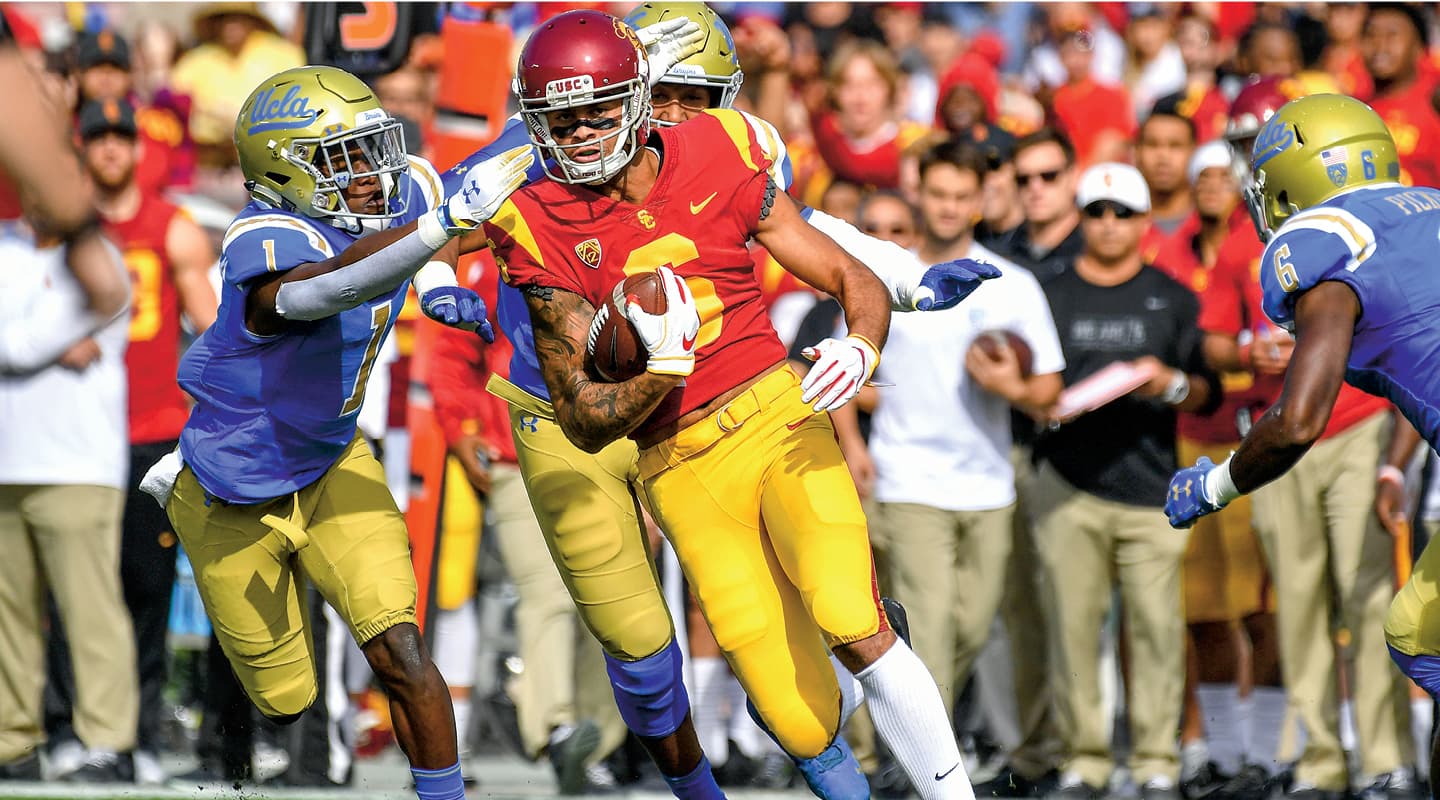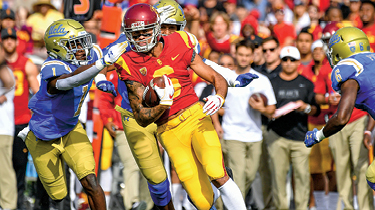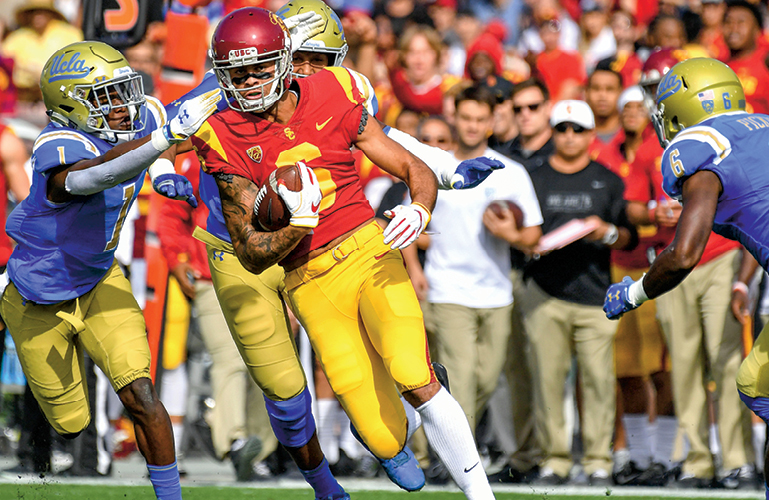Each fall, hordes of fans pack into stadiums across the country to cheer on their favorite college football teams, and millions more watch the games on television. The billions of dollars in revenue from ticket sales, sponsorships, and TV deals goes to the schools and the athletic conferences they belong to, such as the Big Ten and Pac-12. The networks broadcasting the games cash in from selling commercial slots. And top coaches earn millions in salaries.
But there’s one group involved that doesn’t make any money: the players.
Under National Collegiate Athletic Association (N.C.A.A.) rules, college athletes aren’t allowed to get paid by their schools. They also can’t make money off the use of their name, image, or likeness, meaning they can’t sign endorsement deals with sneaker companies, get paid to appear on the covers of video games, profit from sales of their jerseys, or even sell their autographs on eBay.
Now a new law in California could change that. In September, California Governor Gavin Newsom signed into law the Fair Pay to Play Act to allow college athletes in that state to strike endorsement deals and hire agents. The law, which is scheduled to go into effect in 2023—but may face a court challenge before then from the N.C.A.A.—is the latest chapter in a longstanding debate over whether college athletes should get paid.
“Every single student in the university can market their name, image, and likeness; they can go and get a YouTube channel, and they can monetize that,” Newsom says. “The only group that can’t are athletes. Why is that?”
It happens every fall across the country. Crowds of fans pack into stadiums to cheer on their favorite college football teams. Millions more watch the games on television. The ticket sales, sponsorships, and TV deals generate billions of dollars in revenue. That money goes to the schools and the athletic conferences they belong to, such as the Big Ten and Pac-12. The networks broadcasting the games cash in from selling commercial slots. And top coaches earn millions in salaries.
But there’s one group involved that doesn’t make any money: the players.
That’s because of rules set by the National Collegiate Athletic Association (N.C.A.A.). Under these rules, college athletes aren’t allowed to get paid by their schools. They also can’t make money off the use of their name, image, or likeness. That means they can’t sign endorsement deals with sneaker companies or get paid to appear on the covers of video games. They also can’t profit from sales of their jerseys or even sell their autographs on eBay.
Now a new law in California could change that. In September, California Governor Gavin Newsom signed into law the Fair Pay to Play Act. It allows college athletes in that state to strike endorsement deals and hire agents. The law is scheduled to go into effect in 2023. It’s likely that it’ll face a court challenge before then from the N.C.A.A. This is just the latest chapter in a longstanding debate over whether college athletes should get paid.
“Every single student in the university can market their name, image, and likeness; they can go and get a YouTube channel, and they can monetize that,” Newsom says. “The only group that can’t are athletes. Why is that?”



